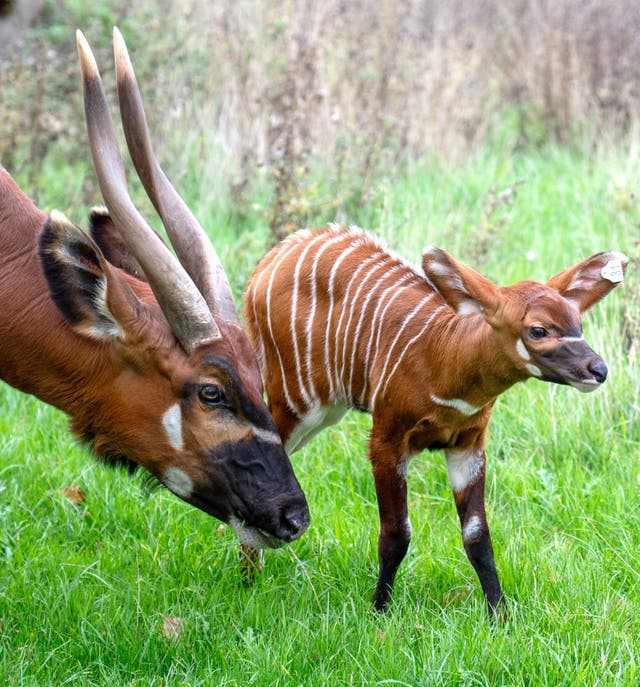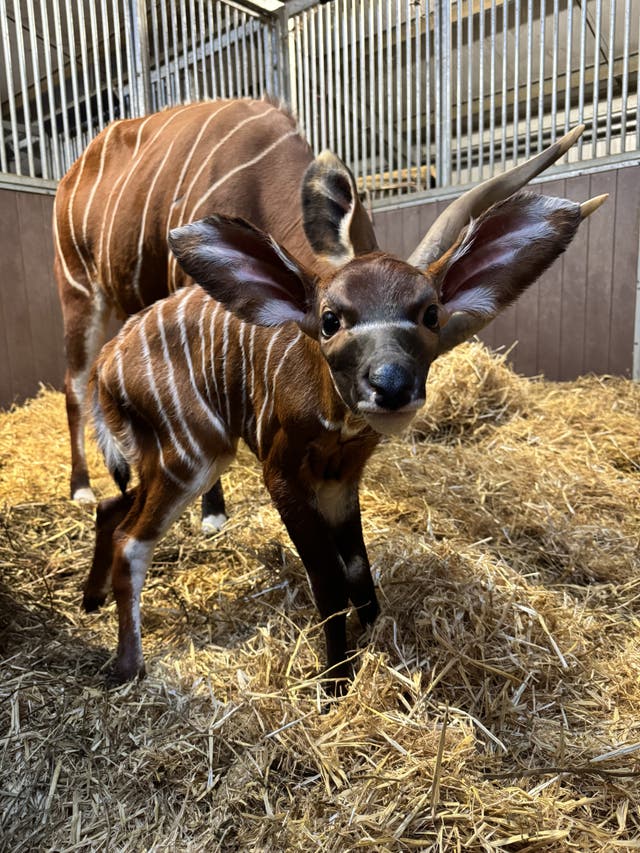The calf is the first female of the species to be born at Woburn Safari Park in Ridgmont, Bedfordshire, for more than a decade.
A safari park has announced the birth of a rare eastern mountain bongo calf, which it says is a “significant milestone for one of the world’s most endangered large mammals”.
The calf is the first female of the species to be born at Woburn Safari Park in Ridgmont, Bedfordshire, for more than a decade.
It was born to Othaya, who also gave birth to male calf Djembe last year.
Another male calf was born at Woburn in May this year, to first-time mother Odongo and father Sonny.

A spokeswoman for the park said that the birth of the eastern mountain bongo was “a vital step forward for this antelope species on the brink of extinction”, with fewer than 100 left in the wild.
She said: “Eastern mountain bongo have suffered devastating losses due to habitat destruction, poaching and disease.
“Every successful birth in a managed breeding programme is a meaningful contribution to their conservation.”
Head of section Tom Robson, who monitored the birth because of challenges during Djembe’s birth, said: “This is Othaya’s second calf, and she struggled giving birth to her first, so we checked her frequently throughout the night.
“Thankfully all was well and we’re happy to see a strong-looking calf. Othaya struggled to feed the new arrival at first, so we provided a supplement, but now mum is doing a great job.
“We’re all very pleased, as it’s a female calf she will hopefully go on to breed in the future and play a part in the survival of the bongo species.”

The park spokeswoman added: “The birth of this baby bongo is not only a rare event, it’s a strategic win for global conservation.
“As part of an endangered species breeding programme, her arrival strengthens Woburn Safari Park’s role in reversing the decline of eastern mountain bongos.
“Already the calf is showing signs of healthy development and has begun bonding with her older siblings, Djembe and Ziggy, both born at Woburn in recent years.
“With her vivid chestnut coat marked by white stripes, the young bongo calf showcases the species’ natural camouflage, a striking adaptation that helps them vanish into the dappled light of forest under-storey.
“Her oversized ears, finely tuned to detect the faintest rustle or call, are not only visually distinctive but vital for survival in dense, echoing terrain.”

